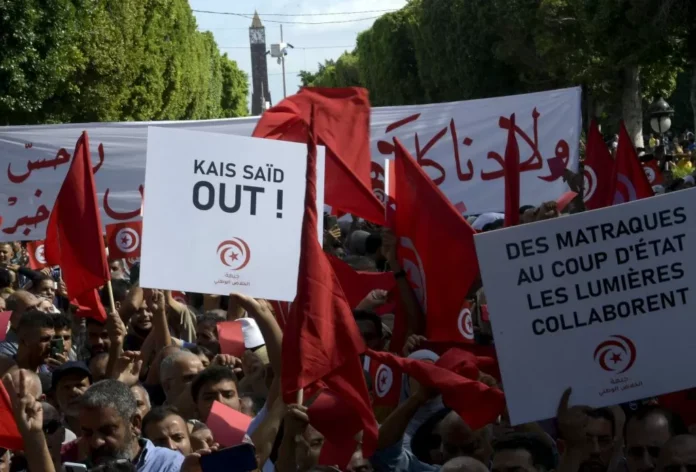President Kais Saied’s near-certain—and certainly illegitimate—reelection in the Oct. 6 election is a sad reminder of the Arab Spring’s failure. It is a disheartening reality that a leader who came to power promising to bring change and democracy to Tunisia has instead cemented his own authoritarian rule and disregarded the will of the people.
In 2011, Tunisia was seen as a beacon of hope during the Arab Spring, with the ousting of long-time dictator Zine El Abidine Ben Ali. The people of Tunisia were finally able to exercise their right to choose their own leaders and shape their own future. However, the recent election has shown that this hope has been dashed as President Saied has tightened his grip on power.
The Oct. 6 election was marred by reports of voter intimidation, media censorship, and crackdowns on opposition parties. This is not the democratic process that the people of Tunisia fought for. It is a clear violation of their rights and a betrayal of the principles of the Arab Spring.
President Saied’s actions are not surprising, considering his track record since coming into power in 2019. He has continuously sidelined parliament and taken on more executive powers, claiming to act in the best interest of the people. However, this is a dangerous precedent that goes against the very principles of democracy.
Furthermore, President Saied’s reelection campaign was plagued with accusations of corruption and misuse of state resources. This is a clear indication that he is more focused on consolidating his power rather than serving the needs of the people. The people of Tunisia deserve a leader who is accountable, transparent, and committed to their well-being.
The sad reality is that President Saied’s reelection will only lead to further deterioration of Tunisia’s economy and democratic institutions. The country has already been struggling with high unemployment rates, inflation, and a stagnant economy. With an autocratic leader at the helm, it is unlikely that these issues will be effectively addressed.
The Arab Spring was a moment of hope and promise for the people of Tunisia and the wider region. It was a chance for them to break free from authoritarian rule and build a better future. However, the failure of the Arab Spring in Tunisia is a reminder that democracy is fragile and can easily be taken away by those in power.
It is now more important than ever for the international community to support the people of Tunisia and hold their leaders accountable. The people of Tunisia have shown immense resilience and determination in the face of adversity, and they deserve to have their voices heard and their rights protected.
The upcoming years will be crucial for Tunisia’s future. The international community must continue to put pressure on President Saied to respect the rule of law and uphold the principles of democracy. It is also essential to support civil society organizations and human rights groups in Tunisia to ensure that the voices of the people are not silenced.
In conclusion, President Kais Saied’s near-certain—and certainly illegitimate—reelection is a sad reminder of the Arab Spring’s failure. It is a wake-up call for the international community to take action and support the people of Tunisia in their fight for democracy and freedom. The people of Tunisia deserve a leader who will uphold their rights and work towards a better future for all. It is time for President Saied to listen to the voices of the people and respect their will. Only then can we truly say that the Arab Spring has not been in vain.

